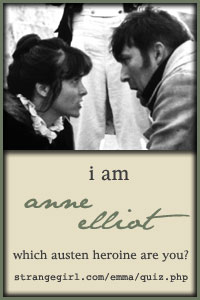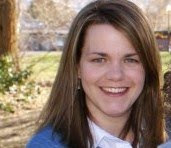So I'm doing a little research.
I want to know what makes a great character.
Why do you love some book's characters and not others?
Who are your favorite characters and why?
Thursday, May 20, 2010
Quote
Elizabeth: "Now be sincere; did you admire me for my impertinence?"
Darcy: "For the liveliness of your mind, I did."
Dang--love that Mr. Darcy.
Tuesday, May 11, 2010
The Maze Runner by James Dashner

There are two kinds of books in this world. Those you leave in your car and read for ten minutes at a time and books you carry with you everywhere in hopes you’ll get a chance to read. The kind of book you put your kids in front of the TV so you can finish that last chapter uninterrupted (not that I’ve ever done that ;) The kind of book that messes with your laundry status (although I really don’t need books to interrupt laundry efficiency).
Unfortunately, The Maze Runner is a leave in your car book.
Here’s a synopsis:
“When Thomas wakes up in the lift, the only thing he can remember is his first name. He has no recollection of his parents, his home, or how he got where he is. His memory is black. But he’s not alone. When the lift’s doors open, Thomas finds himself surrounded by kids who welcome him to the Glade, a large expanse enclosed by stone walls.
Just like Thomas, the Gladers don’t know why or how they got to the Glade. All they know is that every morning, for as long as they could remember, the stone doors to the maze that surrounds them have opened. Every night, they’ve closed tight. Every thirty days a new boy is delivered in the lift. And no one wants to be stuck in the maze after dark.
The Gladers were expecting Thomas’s arrival. But the next day, a girl springs up—the first girl ever to arrive in the Glade. And more surprising yet is the message she delivers. The Gladers have always been convinced that if they can solve the maze that surrounds the Glade, they might be able to find their way home . . . wherever that may be. But it’s looking more and more as if the maze is unsolvable.
And something about the girl’s arrival is starting to make Thomas feel different. Something is telling him that he just might have some answers—if he can only find a way to retrieve the dark secrets locked within his own mind.”
I didn’t care.
The premise was cool, but I didn’t care about the characters. I didn't believe it. I didn’t really care to believe it. In other words—I DIDN’T CARE. I’m all for crazy plotlines (hello—LOST!), but there has to be some connection to the characters. If I care about what’s happening to them, I'm willing to go along with it, craziness and all. I've read others describe this book as a real page turner. This just didn't happen for me at all. Even when things started to get interesting, which for me didn’t occur until chapter 47, I still didn’t care about the characters.
Another thing I didn’t like was all the emotion listing. For example, “He’d been through the gamut of emotions in the short time since he’d arrived in the Glade. Fear, loneliness, desperation, sadness, even the slightest hint of joy.” It sounds like he’s listing ingredients. I would like to add a dash of disappointment, a pinch of frustration and a heap of annoying! The same thing occurs on the very next page. “Thomas quickly gathered his thoughts, grasping for the right words inside the swirling cloud of frustration, confusion and anger in his mind.” Funny, that’s exactly how I felt while reading this novel. Exceptional novels show rather than tell what a character is feeling.
I also had a problem with the invented slang. It grated on my nerves like the sound of someone cutting apples (I have serious issues with that sound. I know. It’s weird). I found it distracting and unnecessary.
This book is the first in a series of three. I will not be pursuing the rest.
Now I have to say, the wanna-be writer in me feels that reading a bad novel is just as important as reading a well-written novel. It teaches me what not to do. To be an effective writer you need to read it all—the good, the bad, and the mediocre. It’s important to learn what works and what doesn’t.
Subscribe to:
Posts (Atom)


